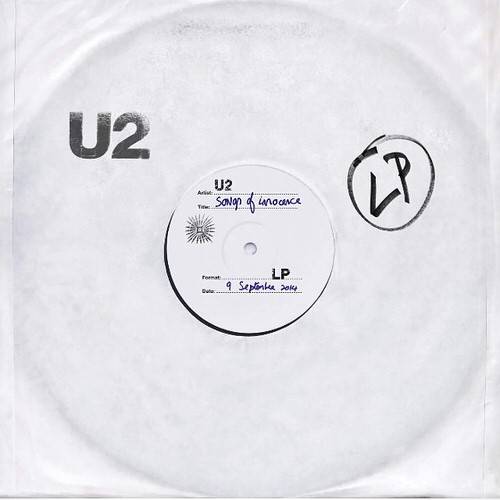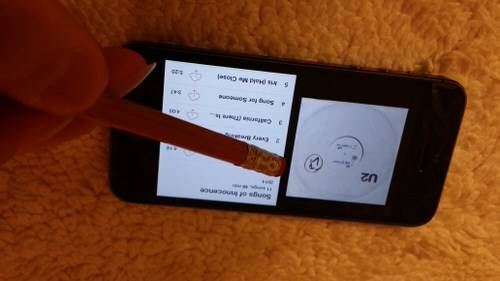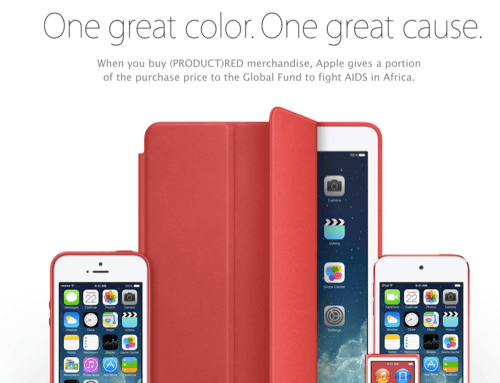
Who wouldn’t love to get free music? That must have been what Apple executives told each other when they green-lit a plan to push U2’s latest album Songs Of Innocence out to the iTunes libraries of its unsuspecting iPhone users last week.
Ahem. The answer, it turns out, was plenty of folks—especially younger iPhone owners who have no idea who U2 is. And many have become irate about Apple abruptly breaching the sanctity of their music collection by slipping in unfamiliar songs.
If you’re among those who don’t get these not-quite-as-famous-as-Apple-thought Dubliners, we’ve put together a short primer for you—followed by instructions on how to banish them from your iTunes account if you’re so inclined.
Bloody Tuesday
People who watched Apple’s press conference all the way to the end on Tuesday knew what to expect. After revealing two big iPhones 6 and a new Apple Watch, CEO Tim Cook wound things down with a performance by U2, followed by a hokey skit in which U2 frontman Bono pretended to hit up Cook for press about its latest album.

If you didn’t catch the action, or have no idea who the heck that was, let’s review. U2 is…
- … one of the best-selling music groups of all time. An Irish band formed in 1976, U2 often invokes spiritual, social or political themes in its songs, which include hits like “One,” “Beautiful Day,” “Sunday Bloody Sunday,” “Still Haven’t Found What I’m Looking For,” “With Or Without You” and “Where The Streets Have No Name.”
- … led by front man and lead vocalist Paul Hewson, best known as Bono. Apart from being a singer-songwriter, he’s a well-known activist, philanthropist and Apple cohort.
- … a long-time Apple partner who has been working with the tech company and others on the “Product(Red)” brand of products, an awareness and fundraising campaign focused on HIV/AIDS in Africa. Despite some controversy over how much of the proceeds actually go to charity, Apple continues to offer Product(Red)-branded red iPods and iPhone accessories.

Giving away U2 songs should have made for a pretty cool publicity stunt for Apple, or so the company clearly thought. But when iPhone users spotted the new songs in their cloud-based iTunes accounts, a collective “WTF?” spread out across the Web. A dedicated website—WhoIsU2.com—sprung up, corralling numerous exasperated tweets.
https://twitter.com/alyssajuntilla/status/510884649334083584
but on a serious note. who is U2? why would apple choose to put them in my library? can I get a refund on free songs?
— evan samuels (@evansamuels_) September 13, 2014
https://twitter.com/CristinaAdoresU/status/510696641209569280
Who is U2? 😒 Someone please give me answers!
— Hurricane Fina (@YouCantBe_STEPH) September 14, 2014
As for the merits of the album itself, some critics regard the William Blake-tinged Songs Of Innocence as a melancholy look backward in the rearview mirror, rather than a forward look at a cool new future. Small wonder it’s not exactly a hit with the kids. It’s also strange that Apple would choose this album to cap off its big iPhone event.
Ditching The Pro-Bono Music
Initially, the U2 album showed up in user libraries absent any obvious way of removing them from iTunes. Since then, Apple wisely decided to grant its users the ability to delete the album.
Apple posted a support document outlining the steps. While a bit more involved than a one-touch operation, it shouldn’t be difficult for most people to manage. But bear in mind, if you have Bono remorse, you only have until October 13 to reverse your decision. If you suddenly get swept up in U2 love after that, you’ll have to buy it.
Here are the removal steps, according to Apple:
- Go to http://itunes.com/soi-remove.
- Click Remove Album to confirm you’d like to remove the album from your account.
- Sign in with the Apple ID and password you use to buy from the iTunes Store.
- You’ll see a confirmation message that the album has been removed from your account.
Seemed Like A Good Idea At The Time
Lame or not, the Tim Cook-Bono spectacle harked back to the days when the company billed its August/September presentation as a music event. Apple used to devote this time to its lineup of iPods; instead, this year the company retired its iconic classic iPod (with click wheel) coincident with its presentation.
Clearly some people did not appreciate the freebie—or rather, the way Apple conducted the promotion. The iPhone maker didn’t ask its users whether they wanted the album—the company just charged forward, tossing it into people’s iTunes accounts without asking their permission.
That was ill-conceived. The public may have forgotten about the Jennifer Lawrence-iPhone photo leaks in the face of huge iPhones and wearable Apple gadgets. But shenanigans like this—no matter how well-intended—only remind people that they’re not in full control over their own accounts. For a company about to launch a massive mobile payments campaign, dubbed Apple Pay, this may not have been the best time to call attention to its casual approach to user autonomy.
Lead photo by Compudemano; iPhone image and Product(red) screenshot by Adriana Lee for ReadWrite

















